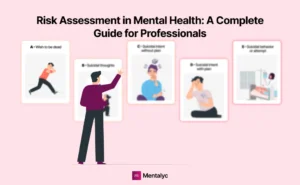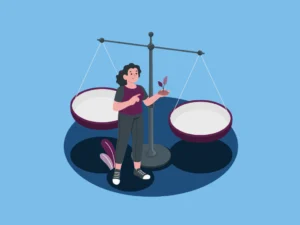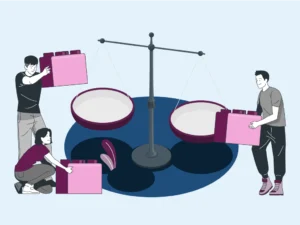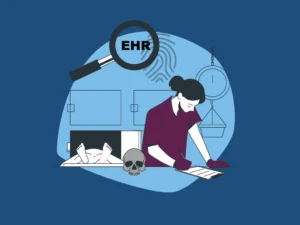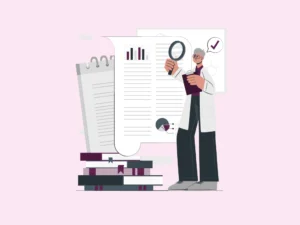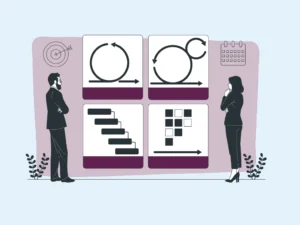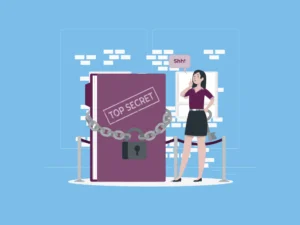Mentalyc Blog
-
Mental health risk assessment is one of the most essential — and nerve-wracking — parts of clinical work. It’s the systematic process of evaluating whether a client may harm themselves or others, and yet even seasoned therapists can feel unsteady when safety concerns arise. This guide walks you through the tools, questions, and best practices for […]
-
Motivational Interviewing (MI) is fundamentally about working alongside clients as they dig into their own reasons for wanting change instead of telling them what they should do. We’ve all experienced those sessions where this becomes invaluable. Picture yourself sitting across from a client who expresses wanting something to change, yet somehow, every week feels like […]
-
The Session Rating Scale (SRS) is a simple but efficient way to get immediate feedback about clients’ experiences in therapy. It shows the therapeutic relationship between the therapist and client during sessions. With the Session Rating Scale (SRS) therapists can find out how the client feels about a session. They can also check if their method […]
-
The online disinhibition effect is a psychological effect whereby people are more honest, frank, or passionate about themselves within online communities than they would be face-to-face. Therapeutically, this is expressed when clients are surprisingly relaxed sharing confidential, even intimate information within the first phases of the relationship, or when they email emotionally charged messages between […]
-
The Group Session Rating Scale (GSRS) is an ultra-brief, four-item visual analog scale designed specifically to measure therapeutic alliance in group therapy settings. Unlike traditional alliance measures that focus solely on the client-therapist relationship, the GSRS captures the multidimensional nature of group therapy by assessing both the client’s relationship with the group leader and their […]
-
Clinical notes are part of everyday practice in mental health settings. Each entry records what was observed, discussed, and addressed in session with the client. These notes support accurate documentation. They also guide the next steps in client care. As a therapist, clear writing ensures that nothing important is missed. This article explains how to […]
-
Billing in group therapy involves understanding specific CPT codes, insurance requirements, and reimbursement structures unique to group treatment modalities. Picture this: You have just finished leading your first therapy group. Eight participants had significant engagement, and everyone left feeling hopeful. You’re riding high on that “this is why I became a therapist” feeling until you […]
-
Electronic Health Records (EHRs) are digital versions of clients’ paper records. They allow healthcare practitioners to view client records faster and quicker. A typical EHR contains details about the client’s medical history. It also contains treatment plans, medications and details that ensure clients receive personalized care. EHR implementation ensures that practices improve their effectiveness and […]
-
The Agnew Relationship Measure-5 (ARM-5) is a brief, five-item questionnaire that represents a carefully crafted synthesis of the core elements that define therapeutic alliance, designed specifically for the realities of contemporary clinical practice. Unlike lengthy assessment batteries, the ARM-5 takes a few minutes to complete. Its questions feel natural and relevant, capturing the essential dimensions […]
-
Cultural Competence in therapy is about the therapist being aware, acknowledging, and accepting of cultural differences that might exist between them and the client, treating these differences with curiosity, compassionate inquiry and respect. Cultural competence helps the therapist maintain an unconditional positive regard towards their client, which in turn helps facilitate a strong therapeutic alliance […]
-
SimplePractice, TherapyNotes and TheraNest are three popular EHRs and practice management software. They have several features that help you streamline your workflow. Before making a choice, it is important for you to know the pros and cons of each EHR system for private practices. Managing your mental health practice is easier when you use a […]
-
ICANotes and TherapyNotes are two popular EHRs (Electronic Health Records) that health professionals use. To run your private practice effectively, you need the right Electronic Health Record system and Practice Management Software. Without these systems, the paperwork and administrative responsibilities could be overwhelming. In this article, we will examine the features of both options and […]
-
The most effective therapy techniques and interventions are those that are carefully tailored to the unique needs, circumstances, and readiness of each client. Over the course of my clinical experience, I have come to understand that the power of any given technique is largely dependent on the strength of the therapeutic alliance and the client’s […]
-
Confidentiality is one of the most essential elements in the practice of counseling, serving as both a legal obligation and an ethical commitment. At its core, confidentiality ensures that personal information shared by clients during therapy sessions is not disclosed without their consent. This principle not only protects the privacy of individuals but also creates […]
-
In the world of psychoanalysis, the therapeutic alliance is more than just a professional bond—it is the crucible for emotional growth, self-discovery, and psychic integration. Rooted in mutual respect, a shared commitment to the process, and the capacity to withstand emotional turbulence, the alliance in psychoanalytic therapy creates a unique space where the unconscious can […]
-
In a rapidly evolving mental health landscape—particularly in regions where awareness is growing but accessibility remains inconsistent—therapists with private practice face both a challenge and an opportunity. The challenge lies in navigating a saturated market where simply being qualified is no longer enough. The opportunity, however, is immense: more people are actively seeking support, and […]
-
The CPT Code 90849 is for multiple-family group psychotherapy, a form of treatment that brings families together to heal. Participants share the therapy space, share their own experiences, support one another, and use this group dynamic to encourage them to grow in one another’s company. This guide breaks CPT Code 90849 down into uncomplicated, practical […]
-
At the heart of every effective therapeutic relationship lies a subtle yet powerful force: therapeutic rapport. This connection between therapist and client goes beyond friendliness or professional courtesy—it is the foundation upon which trust, openness, and transformation are built. Whether therapy is short-term or ongoing, whether addressing trauma, anxiety, identity, or relationships, therapeutic rapport influences […]
-
Trust and respect form the core architecture of any therapeutic relationship. Without these foundational elements, even the most sophisticated therapeutic approaches will fall short. Trust allows clients to feel emotionally safe, while respect honors their autonomy, identity, and lived experience. These are not simply nice-to-haves—they are non-negotiables for meaningful therapeutic work. Whether therapy is brief […]
-
The right progress note format simplifies documentation, sharpens your clinical observations, improves continuity of care, and makes reimbursement easier. As a therapist, you likely did not choose this profession to spend all your evenings buried under paperwork, but there is no doubt that progress notes are part of the deal. So, how do you find […]
-
Clinical Documentation Improvement (CDI) is very important in today’s modern healthcare, it ensures that notes and records about a client’s health are clear, complete, and correct. Therapists and other healthcare workers need these records to give the best care. If the notes are missing key details or contain errors, it can lead to the wrong […]
-
Congruence in counselling is the ability of the therapist to be present, real, and genuinely themselves in the therapeutic relationship. If a client enters the therapy room, they know immediately whether the therapist is genuine or merely pretending to be professional. This innate sense of genuineness speaks to one of the most fundamental things about […]
-
Exposure hierarchy, a structured, step-by-step plan that helps clients gradually face their fears, is far more than just a standard CBT tool, it can be a lifeline for those overwhelmed by anxiety. Imagine working with someone who struggles to leave their home, paralyzed by the weight of their fears. In these moments, a well-designed exposure […]
-
Using HIPAA compliant online forms is a critical but often overlooked part of maintaining a secure and ethical therapy practice. With the constant demands of client care and administrative work, it is tempting to rely on convenient tools like Google Forms. While these platforms are free and easy to use, they often fall short of […]
